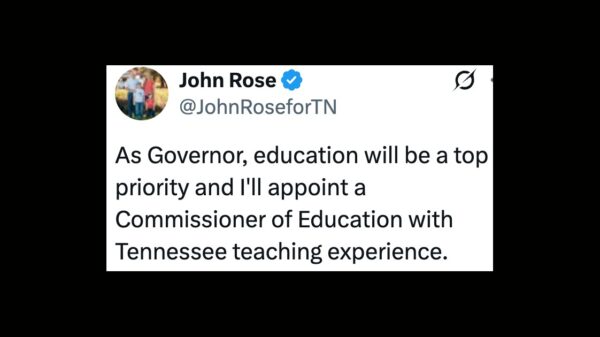On May 9, 2025, Tennessee Governor Bill Lee enacted Public Chapter 453, which modifies various sections of the Tennessee Code Annotated, including Titles 4, 8, 9, and 49. The legislation received strong support in the Tennessee House with 77 votes in favor and 18 against, and in the Senate, it passed with 27 in favor and 6 opposed.
This law centered on pronoun usage in public schools, reinforcing the principle that constitutional rights are upheld in educational settings and affirming a commitment to freedom of speech.
The law fundamentally prioritizes individual rights, stating that no student, teacher, or contractor can be required to use pronouns for students that differ from their biological sex.
This provision highlights the ongoing conflict between personal identity expression and conventional understandings of gender. By linking pronoun usage to biological sex, the law provides legal protections for those who follow this guideline, framing it as an issue of free speech.
The implications of this law are significant and complex. It protects educators from civil liability when they choose to use names and pronouns that align with a person’s biological sex, even if this contradicts an individual’s preferred identifiers.
This creates a sense of security for educators who feel pressured by non-traditional gender norms. However, it may raise questions about the potential marginalization of some students.
Teachers are required to refer to unemancipated minor students by their biological names and pronouns unless they have written consent from a parent or guardian. This provision ensures parental involvement in matters concerning children’s identities, but it may lead to tensions between parental beliefs and shifting societal norms regarding gender.
Public school teachers and staff, as well as Local Education Agencies (LEAs), must not address a minor student by any name other than the student’s legal name or use pronouns or titles that do not align with the student’s biological sex, without obtaining written consent from a parent or guardian.
Additionally, the law establishes a process for addressing violations, allowing students and educators to file complaints if they feel pressured to use preferred names or pronouns contrary to the law. This framework for accountability raises concerns about potential disputes within school communities.
The law extends to public institutions of higher education, requiring ongoing notifications regarding rights related to free speech, which reflects a commitment to protecting free expression at all educational levels. The challenge lies in striking a balance between protecting individual expression and broader principles of free speech.
Tennessee’s law on pronoun usage signifies a pivotal shift in how schools approach identity and expression. This deeply personal issue often evokes strong opinions, making it essential to respect diverse beliefs while focusing on the law’s intent and execution.
Open dialogue is vital for safeguarding individual freedoms, ensuring that all voices—students, parents, taxpayers, and educators—are heard. While challenges are present, there is also an opportunity for growth and understanding within our educational environments.
JC Bowman is the Executive Director of Professional Educators of Tennessee and is the contributing education editor for TriStar Daily.
















